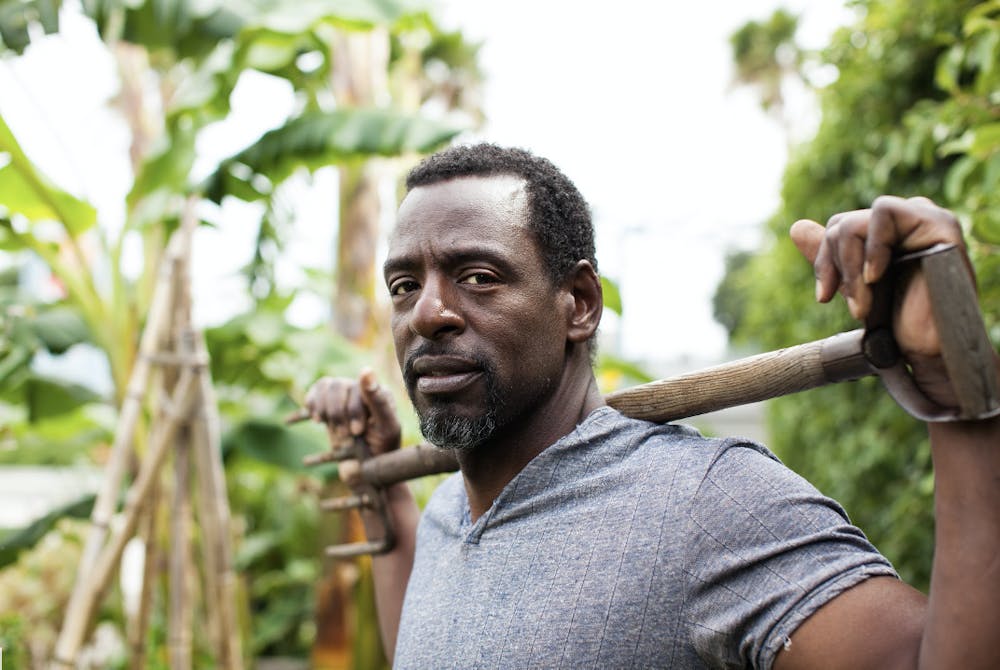Imagine block after block of fast food chains like McDonalds or KFC serving as the only source of food with no grocery stores within a mile radius. Cities across America are dry stricken without fresh food for miles to come, leaving thousands abandoned in food deserts. Food deserts as defined by Medical News Today are “regions where people have limited access to healthful and affordable food.”
This is the case in Washington, D.C. as there are many food deserts that are disproportionately located throughout the territory. According to the D.C. Policy Center, more than three-quarters of the food deserts in D.C. are located in the southern Wards 7 and 8, which are defined by having all three defining elements of a food desert: Areas that (1) are located more than half a mile from a grocery store or supermarket, (2) have low rates of car access, and (3) have a high poverty rate.” These places often fall within a poverty rate of either 20% or greater, according to CNN. Food deserts are a significant issue in the development of growing communities and can be a major pitfall for the health and immune systems of the families and children that live there. The deprivation of available healthful food is an increasing problem due to the detriments of the COVID-19 pandemic. Now is the time to address the many issues surrounding food including food deserts, food insecurity, lack of accessibility, and food toxicity.
People like Ron Finley have literally implanted new grounds with his work in The Ron Finley Project.
Ron Finley is a resilient and tenacious “food warrior” who has taken initiative to alter people’s negative perceptions of food. I sat down and interviewed Finley, and left the interview feeling inspired to see how important our world’s problems with food are to him.
When asked how he described himself, he says he is an “eco-lutionary,” which is meant to represent a person who is an ecological revolutionary. He preferred not to be referenced as a celebrity because he wanted to be referred to as a man among the people, “I am not telling people to follow me, I am you.”
The self-titled “Gangsta Gardener” hosts his own gardening class on the online streaming service MasterClass. He has grown original gardens and envisions turning unused spaces like parkways and vacant lots into centers of nutritional food for his community in California. In the depths of the food deserts in central Los Angeles, Ron Finley defines his mission as spreading his vision of igniting a horticultural revolution and establishing edible gardens, one city at a time.
In Ron Finley’s gardening MasterClass, he describes how the sugarcane plant is filled with nutrients (such as potassium, zinc, iron, calcium, etc.), but has been artificially reduced to be one of the most addictive substances known to man with significant health consequences leading to the most fatal diseases. A lot of people are not appreciating the food that they are eating. This unappreciation may be due to the fact that snacks and beverages have been made with more and more unpronounceable ingredients and virtually no nutritional value. Finley describes that the way the world works currently is that “it is poverty by design.” The cities we live in are not made for people, they are made for economic progress.
Our youth are encouraged to succeed through consistently working to move up and contribute to society economically. What we need to teach our youth instead is to hold themselves accountable for their actions and become leaders in solving the world’s problems, like food neglect and food insecurity. Finely says that in terms of our Earth’s resources, we are beyond consumption and we need to start thinking about what we leave behind. He says that this is why gardening and taking charge of growing your own food is an essential life skill that everybody should have. We need to be thinking about compost and renewable resources, we need to think about where energy goes and where it comes from, Finley says. These are the important thoughts in life that we need to be asking ourselves.
Since 2010, Finley has started his food revolution, growing carrots and other vegetables on his curbside in South Central L.A., turning neglected dirt patches left to waste into fruitful community gardens. Shortly after, The City of Los Angeles arranged an arrest warrant for his “unlawful use” of unpermitted land. Finley could have turned his back and left the South L.A. food desert behind, but instead, he defined resilience.
Finley established a petition with other “Green Activists,” winning back the right to plant freely. Now, Finley spreads his message by educating people and advocating for the right to proper food for everyone, everywhere.
Our future population depends on how we redirect our communities and its perspectives. He emphasizes that we need to turn protest into progress for our own communities.
In my conversation with Ron Finley, he emphasized that the detriments that have impacted our society causing food deserts, high rates of obesity and diabetes, and loss of appreciation and dignity for our planet, are reversible. It will take time, it will take effort, and it will take regrowth; but if there’s anything I’ve learned from his MasterClass, it’s that plants and human resilience are indestructible. As a youth population, we need to reconstruct our methodology of what we perceive as important, and we need to speak out about eating right and food insecurity in our local areas. We have been imposed to maneuver the social mobility ladder and contribute to economic growth, but what does it mean to truly be rich? Diamond rocks and paper bills will not sustain us on stranded islands. Real food growing out of the ground will.
Get inspired by The Ron Finley Project: http://ronfinley.com



